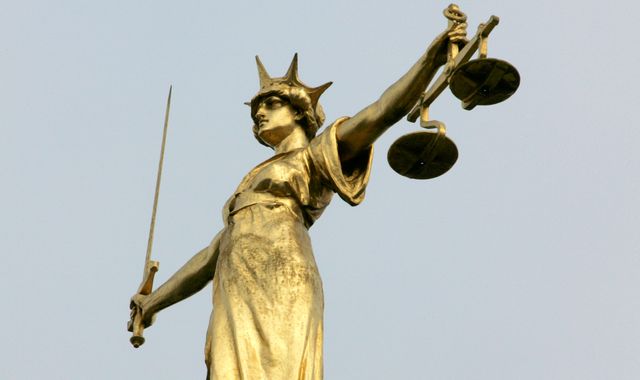Coronavirus: ‘Nightingale courts’ considered as jury trials return
Written by News on 17/05/2020
The construction of temporary “Nightingale courts” to tackle a massive backlog of legal cases in England and Wales is being actively considered, the Justice Secretary has confirmed.


A small number of jury trials will begin again on Monday, after thousands were halted because of the coronavirus lockdown.
But authorities believe it will be many months before courts are anywhere near fully functional and officials are now urgently looking for “radical solutions”.
Justice Secretary Robert Buckland told Sky News he had instructed officials to look at ways of adapting the NHS model of commandeering additional buildings, to allow for social distancing.
“I think we need to concentrate on the court estate first of all,” he said.
“But where it is possible perhaps to do hearings that don’t require custody, that can be done in buildings perhaps adjacent to the court centres, then I think that needs to be looked into and I’ve encouraged that to happen, in places like Cardiff, for example.
“I would like to see more of that thinking done at pace because, frankly, the more space we have, the more we can do.”
An average of 1,000 criminal trials before a jury take place across England and Wales each month.
All jury trials were halted on 23 March to comply with the government’s COVID-19 lockdown.
Four new pilot jury trials will be held this week in London, Cardiff, Bristol and Manchester, after court officials adapted courtrooms to ensure social distancing.
Sky News was given exclusive access to court 16 at the Old Bailey, where one of those cases will be held – the trial of a man accused of causing death by careless driving.
The courtroom has been reconfigured to allow the 12 members of the jury to be moved from the jury box to the much larger well of the court, where they can be seated at least two meters apart.
Legal counsel for the defence and prosecution will move from the well of the court into the jury box.
An adjoining courtroom will also be used to accommodate members of the media and other legal representatives, who will watch proceedings via a video link.
The lord chief justice, Lord Burnett of Maldon, said: “It’s taken a lot of time, a lot of energy and a great deal of effort on the part of many people to come up with plans that Public Health England and Public Health Wales have been entirely satisfied are safe.”
Only a handful of pilot jury trials will be held in the coming weeks, before the number of cases is gradually expanded.
But with it likely to be many months before the country’s courts can operate at full capacity, authorities are considering a number of possible changes to the trial process.
As well as commandeering additional buildings, trials could go ahead with just seven jury members, rather than 12.
Cancelling summer breaks and sitting in the evenings is also under consideration.
Lord Burnett added: “No one, as far as I’m aware, is confidently predicting when life might be able to return to something approaching normal.
“Looking forward to the administration of justice generally, there is absolutely nothing that is off the table.
“If, as many people are speculating, we might need social distancing of some sort for the better part of a year, then I think we are going to have to look at more radical solutions in all jurisdictions, but especially in the criminal context.”
Throughout the Old Bailey, open spaces have been adapted to allow court users to maintain a safe distance from others.
The chairwoman of the Bar Council, who has been involved in helping draw up the new safety protocols, said that it was inevitable there would be some disruption.
Amanda Pinto QC said: “I expect there will need to be some adjustments over the next few weeks. Apart from anything else, all of this is a bit new and we’re rightly feeling our way.
“But I really think people have tried very hard to think in detail about what measures are necessary to keep people safe.”
The lord chief justice said use of video technology, allowing witnesses, defendants and the media to participate in trials remotely, are likely to be more common place in the months ahead.
But Emily Pennink – the Press Association’s Old Bailey correspondent – warned that the use of overspill courts for the media must not become a longer-term model for covering criminal trials once the pandemic is over.
She said: “Sometimes it’s difficult to hear, if you’re on a live link and you have to live with the danger that it’s suddenly going to go down and you might miss a key piece of evidence.
:: Listen to Sophy Ridge on Sunday on Apple podcasts, Google podcasts, Spotify, Spreaker
“It’s really important to be in court and able to see the witnesses and the defendant. You do miss a lot of nuances, if you’re not actually there to see it yourself.”
Small numbers of trials, lasting no more than two weeks, are expected to take place initially.
The wider roll out of jury trials will only happen if the first few pilot cases prove they can operate safely.
(c) Sky News 2020: Coronavirus: ‘Nightingale courts’ considered as jury trials return






